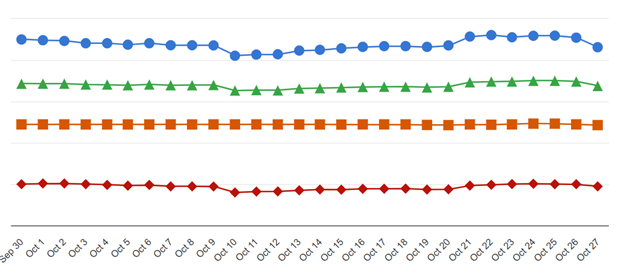Hi guys!
When I look to race prediction times (5k, 10k) I read unreachable times:
5k PB = 26:20 (estimated 23:50)
10k PB = 56:00 (estimated 51:40)
After 2 years using Garmin I supposed predicted times would have been closer than my PB, I was almost dead reaching my PBs... is there a way to trim these values?
Thanks.



